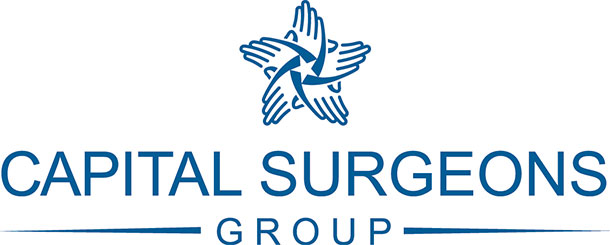The Advantages of Laparoscopic Surgery
Over Traditional Open Surgery
A New Era of Precision and Efficiency
Advancements in technology have revolutionized the healthcare industry, especially in the realm of surgery. Laparoscopy, often enhanced by robotic systems like the da Vinci® Surgical System, has transformed procedures once deemed too complex or invasive into safer and more efficient operations. These breakthroughs continue to redefine surgical standards, providing substantial benefits to both patients and surgeons.
What is a Laparoscopy?
Laparoscopy, also known as minimally invasive surgery, uses small incisions (typically less than a centimeter) and specialized instruments to operate within the abdominal or pelvic cavities. Central to this technique is the laparoscope—a thin, tube-like device equipped with a high-definition camera and light source.
By transmitting magnified, real-time images to a monitor, laparoscopes enable surgeons to perform highly precise operations with minimal disruption to surrounding tissue. Additional small incisions accommodate surgical instruments, reducing the physical trauma associated with traditional open surgery.
Key Features of Laparoscopy:
- Minimally Invasive Access: Reduces tissue damage with small incisions.
- Enhanced Visualization: Provides detailed imaging for precision.
- Versatility: Suitable for diagnostics and complex therapeutic procedures, including bariatric surgeries.
Advantages of Laparoscopic Surgery Over Traditional Open Surgery
Laparoscopic surgery offers numerous advantages compared to traditional open surgery, including:
- Smaller Incisions and Scars
Tiny incisions, often less than an inch, result in smaller, less noticeable scars and a lower risk of complications like infections and hernias. - Faster Recovery Times
Patients recover significantly faster, resuming daily activities sooner due to reduced physical trauma and quicker healing. - Less Pain and Reduced Medication Needs
Smaller incisions lead to less postoperative pain, decreasing the need for pain medications and their associated risks. - Minimized Blood Loss
Laparoscopy involves less blood loss during surgery, reducing or eliminating the need for transfusions, which is critical for high-risk patients. - Lower Risk of Infection
Smaller incisions and limited exposure of internal organs to external contaminants greatly reduce infection risks. - Shorter Hospital Stays
Most laparoscopic procedures result in shorter hospital stays, with many being performed on an outpatient basis. - Quicker Return to Work
With shorter recovery times, less pain, and fewer restrictions, patients often return to work within days or weeks, depending on the procedure.
Common Laparoscopic Procedures
Laparoscopy is widely used across various specialties. Some common procedures include:
- Hernia Repair: Reduced pain and faster recovery.
- Gallbladder Removal (Cholecystectomy): Preferred for gallstones and gallbladder issues.
- Colon and Rectal Surgery: Effective for colon cancer, diverticulitis, and other intestinal conditions.
- Breast Cancer Surgery: Minimally invasive lymph node dissections and more.
- Hemorrhoid Surgery: Precise treatment for advanced cases.
- Bariatric Surgeries: Transformative procedures for weight loss and related health conditions, such as gastric bypass and sleeve gastrectomy.
The Role of Robotic-Assisted Surgery
Robotic-assisted laparoscopy, such as with the da Vinci® Surgical System, elevates minimally invasive surgery to new heights. Combining robotic precision with surgeon expertise, it enhances accuracy and efficiency.
Key Benefits of Robotic Surgery:
- Enhanced Precision: Robotic arms offer superior range of motion for delicate procedures.
- 3D Imaging: Magnified, high-definition, three-dimensional views improve accuracy.
- Reduced Surgeon Fatigue: Ergonomic design minimizes strain during lengthy surgeries.
- Improved Outcomes for Complex Cases: Complex procedures become safer and more feasible, including advanced bariatric surgeries.
Capital Surgeons Group
Leaders in Laparoscopic and Robotic Surgery
At Capital Surgeons Group, cutting-edge technology meets compassionate care. Specializing in laparoscopic and robotic-assisted procedures, their surgeons prioritize optimal outcomes and minimal recovery times.
Procedures Offered by Capital Surgeons Group:
- Advanced Hernia Repair: Customized techniques for faster recovery.
- Gallbladder Surgery: Minimally invasive solutions for gallstones.
- Cancer Surgeries: Precision treatments for colon, rectal, and breast cancers.
- Bariatric Surgeries: Life-changing procedures for sustainable weight loss and improved health.
- General and Gastrointestinal Surgeries: Innovative care for a range of conditions.
At Capital Surgeons Group, expertise meets innovation to provide superior care with a focus on comfort and safety.
Is Laparoscopic Surgery Right for You?
The choice between laparoscopic, robotic-assisted, or traditional open surgery depends on your medical history, condition, and lifestyle. Laparoscopy is often recommended for its many benefits, but some cases may require an open approach due to complexity or urgency.
A consultation with the experienced team at Capital Surgeons Group will help you understand your options and create a care plan tailored to your needs.
Take the First Step Toward Better Health
Considering surgery? Schedule a consultation with Capital Surgeons Group today. Their team of experts is ready to guide you through every step, from diagnosis to recovery, with the most advanced and compassionate care available.
Advanced Laparoscopic & Robotic Surgery: What You Need to Know
Laparoscopy vs.
Traditional Surgery
Discover the benefits of laparoscopic and robotic-assisted surgery over traditional methods, including faster recovery, less pain, and minimal scarring. [...]
Advanced Laparoscopy and
da Vinci Robotics
Discover the transformative power of Advanced Laparoscopic and Robotic Surgery with Da Vinci® Robotics. This groundbreaking technology offers a minimally invasive, precision-driven approach to surgery [...]
Navigating the Road to Recovery
Facing surgery, even with minimally invasive options, can leave you with concerns. At Capital Surgeons Group, we're here to answer your questions and guide you through your recovery. [...]
Laparoscopy vs. Robotics Surgery
Understanding the differences between laparoscopy and robotics surgery can empower you to make the best choice for your needs. Learn how we Capital Surgeons Group, offers both advanced minimally invasive techniques [...]
From Scarred Landscapes to
Minimally Invasive Marvels
Discover how Advanced Laparoscopy & Robotics transform surgery with minimal incisions, faster recoveries, and a smoother journey to healing. Experience the revolution at Capital Surgeons Group.[...]



